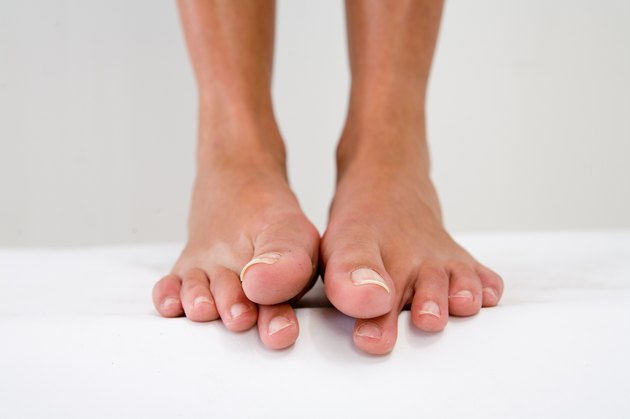Although the occasional itch for a few minutes is not serious, if the itch has not recurred for obvious reasons, you may need to see a doctor. Frequent itching of your toes can not only make you feel depressed and annoyed, but can also indicate serious underlying diseases, including diabetes, allergies and gout. Although your doctor may prescribe drugs to treat these diseases, changing your diet may also help control them. Consult your doctor before changing your diet to treat itchy toes. Changing diet may help itch toes. (picture: Jupiter image s / photos. COM / Getty Images) athlete's foot, a fungal infection that occurs in the moist area between toes, usually manifested as itchy and burning toes. Candida albicans, or yeast, is one of the most common culprits. The University of Maryland Medical Center said that by eliminating sugar from the diet, reducing the intake of dairy products such as milk and cheese, and following an anti Candida Diet, it may prevent the growth of the fungus. In turn, this may help treat athlete's feet and toes for itching. The itching of skin and toes is also related to food allergy, which is the result of abnormal immune response to some foods. According to the Cleveland Clinic, shellfish, peanuts and nuts are the most common food allergens for adults, while milk, eggs, soybeans, wheat and nuts are the most common allergens for children. The website recommends avoiding foods that cause itching to relieve symptoms. Diabetes mellitus can also promote fungal infection, such as athlete's foot. Itchy skin in diabetic patients can also occur when the nerves connecting the toes and brain are damaged, and there is no information from the brain to secrete sweat, which will keep your skin soft and moist. Dry skin around the toes can crack and cause itching. To control your diabetes by eating whole grains, fruits, vegetables, beans, nuts and healthy fish such as tuna and salmon, the States Mayo Clinic. Advertisements athlete's foot
gout is a painful arthritis caused by the accumulation of uric acid in the joints. This usually affects the joints around your big toe, and as the condition subsides, the skin around the affected area may itch and peel. However, gout can be prevented by diet, which can limit the formation of uric acid in the body. According to the Mayo Clinic, the gout diet requires you to avoid alcohol, meat and poultry, but to eat whole grains, vegetable protein, low-fat dairy products and drink healthy fluids. Lack of zinc can damage the decomposition of vitamin A and fatty acids which are necessary for the moist and healthy skin. As a result, this deficiency can cause skin scales and itchy feet and toes. Zinc is also necessary for the immune system to function properly, and a lack of minerals can increase your susceptibility to athlete feet. Changing diet and eating zinc rich foods, such as low-fat dairy products, nuts and oysters, can help prevent zinc deficiency and itching of the toes associated with it.
Advertisements

